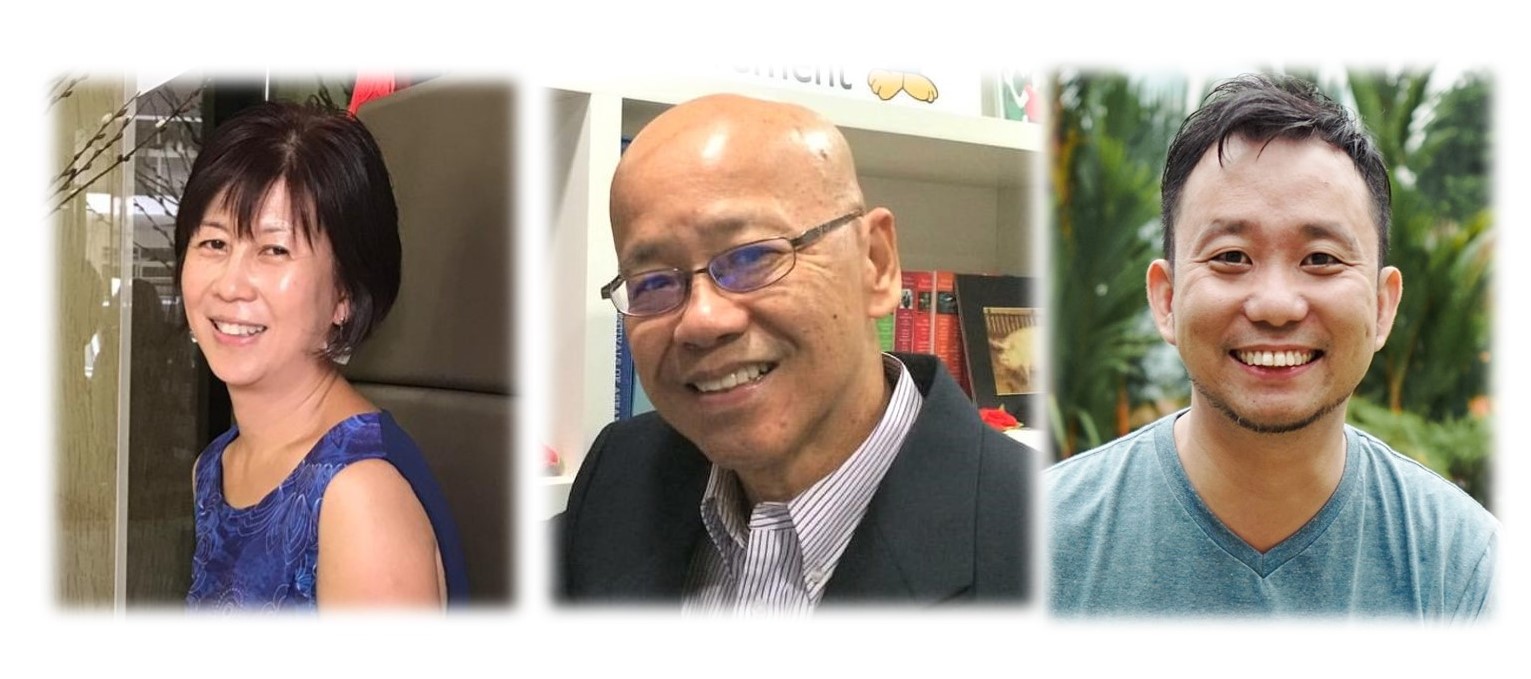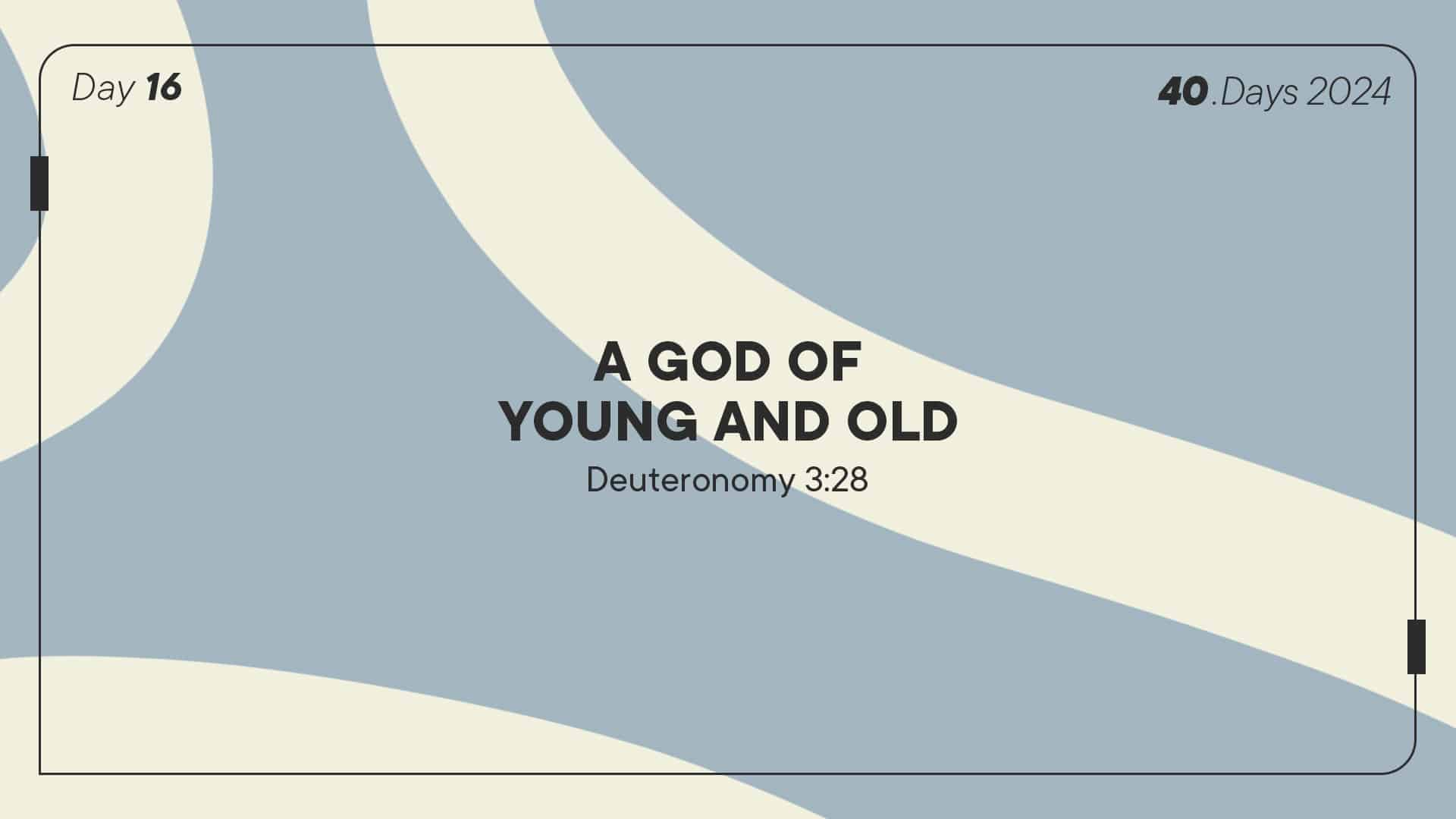Rebel-turned-pastor and parents whose children strayed: Salt&Light Family Night dives into the pain of having a prodigal child
by Christine Leow // July 30, 2021, 12:31 pm

More than 1,600 people signed up to hear the message of hope and reconciliation from missionary June Chuah and Rev Dr William Wan (centre), whose respective children had fallen far from the faith. On Salt&Light's Family Night on Tuesday (July 27), Pastor Edric Sng also shared his perspective as a former prodigal son. The three panellists encouraged parents to not give up and not blame themselves for their children's wilderness journeys. Photos courtesy of June Chuah, Rev Dr William Wan and Ps Edric Sng.
The Zoom registration numbers gave insight into the weightiest issue on the hearts of many parents in Singapore: Children leading a lifestyle that is inconsistent with their parents’ faith.
For the first time since Salt&Light’s Family Night was launched in August 2020, pre-registration had to be closed when more than 1,600 people signed up for 1,000 seats on Tuesday’s (July 27) episode, “Help, my child is falling away from the faith”.
(Those who were not able to attend will be able watch the recording from next Saturday when it is loaded onto YouTube).
In a survey conducted that night, 31% of viewers said they had a child who had left the Christian faith. More than 2 in 5 children who strayed were between the ages of 19 and 25.
Viewers logged on to listen to missionary June Chuah’s seven-year heartache when her son spiralled into depression and attempted suicide, and her daughter fell into drugs and a destructive lifestyle.
They heard of Reverend Dr William Wan’s guilt and helplessness when his daughter wandered into the wilderness. Dr Wan, a father of three and grandfather of four, is the Secretary General of the Singapore Kindness Movement
They also got the perspective of a former prodigal son – Edric Sng, now Deputy Senior Pastor of Bethesda Bedok-Tampines Church (BBTC) and editor of Salt&Light. Ps Edric has five children ranging from a newborn to an 11-year-old.
Each shared brutally honest stories of heartache – and hope and faith in the Father who nourished them, led them out of the wilderness and restored the family.
Drugs and violence
June Chuah and her husband Kari Ahola were missionaries in Uruguay for 10 years.
In 2009, they moved to a different mission field – Spain. “That was when things began to spiral downhill dramatically,” said June, 54.
Their son Joshua went into depression, self-harmed and attempted suicide.
Love them, just love them: The missionary couple who prayed their prodigal children home
“To dull the pain that he went through, he went into a lot of drugs, alcohol.”
One night, they received a phone call. Their son had cut himself in the stomach and had bled for four hours. “The bathroom was full of blood.”
“The pain was so great at times that we actually longed to exit life.”
Her husband developed PTSD – post-traumatic stress disorder. He could not sleep at night for fear of another emergency phone call.
Their daughter Molly smoked marijuana with the youths of the church her parents planted in Spain. It was the beginning of her journey into “a lot of lies, rebellion, toxic relationships – a very, very destructive lifestyle”.
For seven years, the family went through “long periods of great despair, stress and tension”. There was “a lot of pressure on the marriage” that led to fights and arguments.
“The pain was so great at times that we actually longed to exit life. We felt like, ‘Okay, Jesus, we are quite ready to go to heaven now. Just take us out. Let our kids deal with their own journey,” said June.
From adorable to rebel to PhD holder
At age 14, Dr Wan’s daughter turned from “a very mild, lovable, adorable girl into a monster literally overnight”.
She would come home from school with black lipstick and black painted nails. She shaved half her head and coloured the rest of her hair.
“I offered to resign from my church”: The heartache Dr William Wan felt when his daughter strayed
Said Dr Wan, 74: “She had been hiding a lot of things from us. She had been doing drugs in small ways.”
Soon, his daughter’s grades fell and the Wans were called to school many times to meet the counsellor.
“We tried to talk to her but she wasn’t listening. She would fight back.”
At 16, she left home. She was “into drugs, living in a drug community, her boyfriend was a drug addict”.
By 20, she became pregnant and asked Dr Wan to officiate at her wedding.
Today, she has a PhD, and her son is 25.
From prodigal son to pastor
Ps Edric, 41, shared his story from the other side of the fence.
In his youth, he was “the Molly and the Joshua and the unnamed daughter of William” – the one who unapologetically did everything that would grieve a parent.
By his mid-teens, he was leading his own life, which included refusing to go to church. There was little his parents could have done to influence his thoughts or actions then, he said.
He was out of the church for about a decade.
“As long as God doesn’t give up on your kid, don’t give up on your kid.”
To the hurting parents tuning in to Salt&Light Family Night, Ps Edric said: “I know many of you are here because you have a child out in the wilderness, some very far out in the wilderness, some almost seemingly hopelessly lost.
“I can tell you with some certainty that I’m pretty sure that was how my parents felt about me at some point in time.”
He went on to say: “It happens. Don’t blame yourself. My parents were very good, decent Christian people.
“If your child is that wilderness child, that prodigal son, stick to the very simple exhortation: Don’t give up.
“As long as God doesn’t give up on your kid, don’t give up on your kid.”
7 Dos for parents
The panellists shared what parents could do when journeying with their prodigal children.
1. Do be present
Ps Edric spoke of his parents in glowing terms.
His father was a deacon and his parents were exemplary Christians who served faithfully, often spending up to five evenings a week in baptism or discipleship classes.
But they also spent time with him. Both were teachers and would be home in the afternoons.
“One of the biggest open doors to people being stumbled in the faith is abandonment,” said Ps Edric.
“I forgot that God also wanted me to give attention to my children.”
Children of pastors and missionaries feel it even more strongly because, when their parents spend time serving God, should the children feel abandoned, they blame God for it.
This was the experience of Dr Wan’s children. When they became adults, they told him they “resented me a lot because I spent so much time in God’s work”.
He had sent his youngest son to boarding school in America so he could return to Singapore to pastor a church. His son still reminds him, “Dad, you abandoned me for the church.”
Said Dr Wan: “If any of you are in ministry, you really have to protect your time with your children. I failed in not giving as much time to my children as I should have.
“I was so committed and I believed God wanted me to do this and that. I forgot that God also wanted me to give attention to my children.”
“We abandon them when we dismiss what they say because it doesn’t agree with our faith view.”
Abandonment can come in other forms, said Ps Edric.
“We may be fully present in the body but abandon them in terms of attention. We’re not present in spirit.
“Sometimes, we abandon them when we do not listen to them. We invalidate their feelings, we dismiss what they say, because it doesn’t agree with our world view or our faith view.
“These things cut deep. The effects can be lifelong, can be generations-long.”
Ps Edric encouraged parents to:
- Be physically present by spending sufficient time with their children.
- Be emotionally present by hearing them out.
- Be present in a way their children would want to be around them – which often means by having fun with them.
2. Do engage them in conversation
Dr Wan spoke about how often parents “keep thinking the kid is a baby”, and jump in to provide answers.
He recommends asking questions instead: “What do you want?”, “What do you think?”
“Treat them with dignity and give them the standing as a human being.”
In this way, parent and child can have a conversation – not a top-down one, but a lateral one which both can enjoy.
“In the process, give them your wisdom and your understanding, and let them think about it instead of imposing it them,” he said.
“As they grow, we need to have the opportunity to hear them out. Treat them with dignity and give them the standing as a human being.”
3. Do reach out to them on their terms
It is up to the parents to reach out to develop a relationship with their children, especially as they grow into teenagers and young adults.
Said Ps Edric: “I don’t think our kids are going to change for us. They are growing into their own personalities, their own beings.”
He encouraged parents to “try to see yourself from your kids’ point of view”, and to “be the person your kids want to be around”.
“Try to see yourself from your kids’ point of view and be the person your kids want to be around.”
“We have to build a relationship. It might mean swallowing your own pride, doing things you don’t like to do, learning new things to keep up with them.”
Agreed June: “Be intentional. Meet them where they are at.”
She recalled a counselling session where the psychologist asked her, “Do you always need to have the last word?”
She never forgot that.
“Hear them out, catch their hearts, be there for them. Sometimes, all they want is just for you to be there and just listen,” she said.
4. Do deal with your emotions
Dr Wan admitted that when his child strayed, he “felt like I was such a failure”. He was pastoring a church in America then and offered to resign “partly because of a sense of guilt”.
There was even a moment when he felt like disowning his child.
He had to go down on his knees to pray. It was then that he realised that “God was in a worse position than I was”.
“God has millions of prodigal children. But God continues to shower rain on us, continues to let the sun shine.”
“God has millions of prodigal children, I have only one.
“How does God feel? I’m sure God feels hurt. But God continues to shower rain on us, continues to let the sun shine.
“So, I learnt that my heavenly Father is like that so I better learn to keep calm and keep cool.”
June had a similar experience of having to deal with her emotions before God. She had to ask God to change her so that, despite her children’s choices and lifestyles, she could still let them know that “the door is always open when they are ready to come back”.
She talked about how when her son moved out to live with his girlfriend for two years, she chose to support him despite her misgivings.
“In that process of supporting him, it sowed in his girlfriend’s life. They broke up but the two years saw a great healing between us.”
5. Do remember you are only stewards
That ability to let go must come from the understanding that “we are not owners of our kids, not possessors, only stewards”, said Dr Wan.
“God is the owner. We are only trustees. God is going to work it out for them. Let’s not be too anxious for our kids, wanting them to succeed in the way we think success is.
“God loves your children more than you ever could. God would love to see your children come to Him much more than we ever could. Let God do His work.”
6. Do find a community
When her children left the faith, many in the Christian community blamed June and her husband. One even questioned if their children rebelled because they had neglected their duties as parents.
“All I needed was someone to be there to believe in me,” said June.
“They said, ‘If you resign, we have to quit as well because it has happened to all our children.’”
She would find that in Mozambique at Iris Global (then known as Iris Ministries), a missionary organisation that provides humanitarian aid.
“It was a game-changer, a paradigm shift. I met a community of people who were lovers of Jesus, loving and accepting. They didn’t judge yet they had the power of God and manifest presence of God.”
Dr Wan had a church leadership in American who understood his struggles. When he offered to resign from his position as pastor, they rejected his offer.
“They said, ‘If you resign, we have to quit as well because it has happened to all our children.’
“They had compassion and empathy.”
7. Do pray
“One thing my parents did right in terms of getting me back to the faith was that they prayed for me,” said Ps Edric.
“God, through a completely separate journey, brought me back to the faith.”
He met a girl who led him back to God. She is now his wife.
“Not only did I come back to Father God, I got convicted about my own relationship with my dad.
“Because of the discipleship and softening of the spirit that followed, that led to the reconciliation with my father.”
“I went out of my way to reconcile fully with him. I would hug him, ask after him. That reconciliation was something that God engendered in me.
“God was the architect of my reconciliation with my father. Because of the discipleship that followed, the softening of the spirit that followed – that led to the reconciliation with my father.
“There is always hope. God works in tremendous ways. I was so far gone, I can’t believe I am back here.”
June would fast and pray for her children.
She also “spoke out and declared the Scripture God gave me”, and declared prophetic words she was given over Joshua and Molly.
“I prayed with my husband a lot.”
They prayed in tongues and with groups of people.
Dr Wan learnt to surrender his situation to God through prayer.
“When I realised that nothing I said would help, I realised that it’s all entirely in God’s hand.”
“When I got down on my knees and realised that nothing I said, nothing I tried to do would help, I realised that it’s all entirely in God’s hand.
“My job is to look to God, pray for things to happen, expect things to happen and manage whatever is happening right now.”
It was through prayer that he found the fortitude to carry on in those years when his daughter was away from the faith.
“Prayer is really to be entering into the presence of God, and to reflect and meditate and to savour the presence of God.
“It has strengthened me spiritually and mentally so that I have become more resilient.
“I was quite surprised that, apart from that moment when I wanted to disown her, I was able to take (my daughter rebelling and straying) without getting angry.”
Click here to subscribe to Salt&Light’s YouTube channel, and click the bell icon to be notified when new videos are uploaded. Or check back next Saturday for the video recording of “Help, my child has left the faith”.
Check back soon for Part 2 of this report on how panellists connected with their prodigal children while living miles apart.
RELATED STORIES:
“I offered to resign from my church”: The heartache Dr William Wan felt when his daughter strayed
We are an independent, non-profit organisation that relies on the generosity of our readers, such as yourself, to continue serving the kingdom. Every dollar donated goes directly back into our editorial coverage.
Would you consider partnering with us in our kingdom work by supporting us financially, either as a one-off donation, or a recurring pledge?
Support Salt&Light



